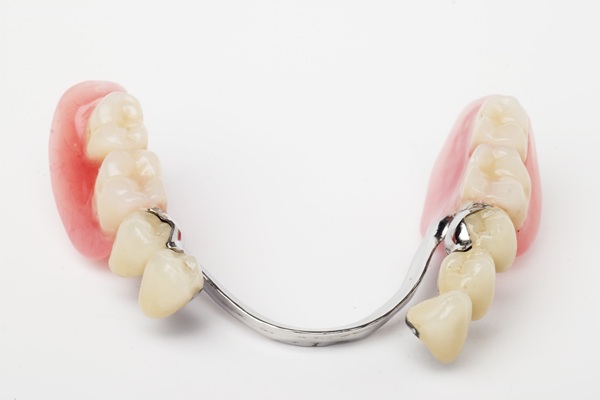4 Everyday Oral Hygiene Tips to Help Prevent Gum Disease

According to the American Dental Association, around 42% of adults over 30 in the United States have some form of gum disease. While access to dental care has helped lower the number of patients who lose teeth to periodontitis, it is still a serious issue that the dental field faces. Gum disease is a largely preventable condition, and by educating patients on good oral hygiene and early detection, it can be reduced even more.
4 key tips for preventing gum disease
Staying free of gum disease involves diligent home care and regular preventive appointments. Many of these habits are already known by patients, but the dental team may need to give tips for implementing them into a daily routine.
1. Brush at least twice daily.
Brushing is essential for removing harmful bacteria and plaque from the gumline. Most people can get by with twice-daily brushing, but brushing after every meal is ideal. If a patient is predisposed to gum disease due to genetic or behavioral factors, a dentist may recommend that the frequency of brushing is increased.
The quality of brushing is just as important as the quantity. An electric toothbrush can help patients remove more plaque, and the recommended brushing time is at least two minutes. Some power toothbrushes have a built-in timer to assist patients with brushing for the appropriate length of time.
2. Floss once daily.
Most people know that flossing is necessary, but few actually follow through. A toothbrush cannot physically remove the plaque that is between the teeth, and over time, this plaque can cause periodontal issues. A patient can floss before brushing to make it a more consistent part of daily hygiene habits. It is especially important to floss after eating, and floss picks can be used on the go when needed.
3. Avoid high-risk behaviors.
While there are some genetic factors that cannot be controlled, a patient can avoid certain high-risk behaviors that increase the chances of acquiring gum disease. Smoking and poor nutrition can exacerbate periodontal problems, so it is important that patients focus on being the healthiest version of themselves. This is not only for oral health but also for overall health.
4. Visit a dentist twice a year.
For healthy patients, a twice-yearly checkup at the dentist is usually acceptable. Patients who have a history of gum disease or high-risk factors may see a dentist more often to detect any problems in the early stages. X-rays and periodontal screenings may be utilized at these preventive visits so that gum health can be monitored over time.
Conclusion
While the fight to end gum disease will not end soon, educating patients on prevention and treatment are essential to reducing the number of cases in America. For patients who suspect they have gum disease, an appointment with a dentist for a full periodontal evaluation is recommended. Now is the time to seek treatment; when it is delayed for too long, treatment options can be greatly reduced.
Request an appointment here: https://lincroftvillagedental.com or call Lincroft Village Dental Care at (732) 842-5005 for an appointment in our Lincroft office.
Check out what others are saying about our services on Yelp: Read our Yelp reviews.
Recent Posts
There are many benefits to removable partial dentures instead of alternative treatment solutions (i.e., implant-supported bridges). Understanding the advantages of partial dentures can help you make the most informed choice possible about the best way to replace your missing teeth.Removable partial dentures are a form of teeth replacement for a section of missing teeth. They…
Full mouth reconstruction involves replacing and repairing damaged or missing teeth. A treatment plan includes a variety of different treatments, and one common procedure is known as dental bridge treatment. This review takes a closer look at how general dentists use dental bridges to replace teeth during full mouth reconstruction. Most patients have several available treatment…
Experiencing a need for a denture repair? Unfortunately, dentures are extremely prone to accidents, which can result in damages such as cracks or chips. When this happens, a lot of wearers wonder what they should do next. The answer is simple, visit a dentist's office.Denture repair should always be done by a dentist, but why?…
Most adults experience some degree of gum disease during their lifetime, but it does not necessarily lead to tooth loss. Understanding how to identify and treat the stages of this common ailment can prevent it from spreading and reduce its impact.Gum disease is an infection of the gum tissue surrounding the teeth. It starts with…


